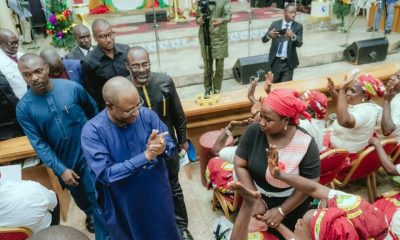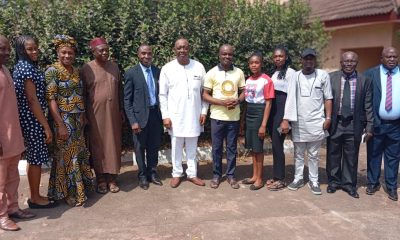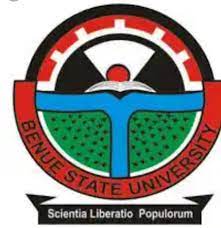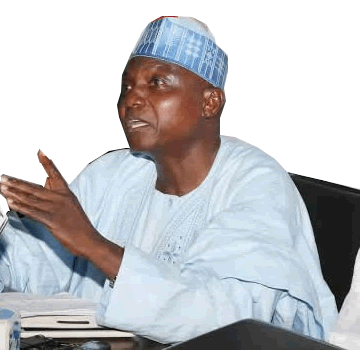Labour
PenCom Pays N27bn to 109,284 Retirees
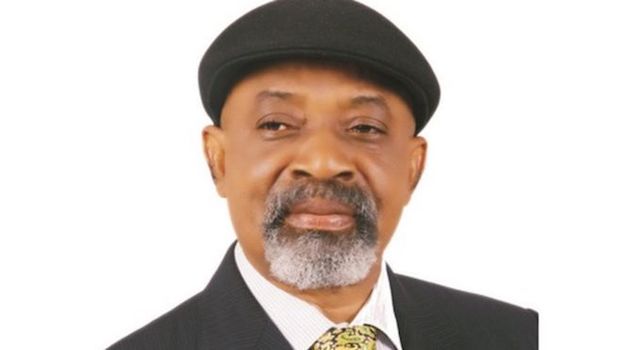
By Joy Okeke, Lagos
The National Pension Commission (PenCom) said it has in the last 15 years up to the third quarter of 2019, made an en-bloc payment of N27.09 billion to 109,284 retirees whose Retirement Savings Account (RSA) balances were either N550,000 or below and considered insufficient to procure a Programmed Withdrawal (PW) or Annuity.
The Commission disclosed this in its quarterly report released on Thursday stating that it granted approval for the payment of the entire RSA balances of the categories of retirees whose RSA balances were N550,000 or below and considered insufficient to procure a Programmed Withdrawal or Annuity of a reasonable amount over an expected life span.
It added that approval was also granted for payment of RSA balances to foreign nationals who decided to return to their home countries after making contributions under the CPS.
“Accordingly, the sum of N 665.38 million was paid to 2,801 retirees, which comprised 173 from the public sector (FGN and State) and 2,628 from the private sector.
“Consequently, a total of 109,284 retirees received en-bloc payments totaling N27.09 billion from inception to the end of the third quarter of 2019,” it posited.
“PenCom has continued to drum the need for workers to embrace voluntary contributions to shore-up their RSAs, so that at retirement they would be able to have more than N550,000 that would qualify them for monthly pension benefits,” the report stated.
The Pension Reform Act 2004 established the National Pension Commission (PenCom) as the body to regulate, supervise and ensure the effective administration of pension matters in Nigeria. The functions of the Commission include: Regulation and supervision of the Scheme established under the Act.
FG Swears-in Investment Tribunal Chairman, Warns Against In-fighting
By Tony Obiechina, Abuja.
The Federal Government on Thursday swore-in the newly appointed Chairman of the Investments & Securities Tribunal (IST), Barrister Azi Amos Isaac and a member, Barrister Nosa Smart Osemwengie.
While the chairman, Barr Azi has been appointed for the first term of five years, Barrister Nosa Smart Osemwengie, was re-appointed for the second term of four years.
Inauguration of the two Tribunal members was performed by the Minister of Finance, Budget and National Planning, Mrs Zainab Ahmed in Abuja on Thursday, according to a statement by her Special Adviser on Media & Communication, Mr Yunusa Tanko Abudullahi.
In her address, the minister said: “With your appointment, the tribunal now has a full complement of 10 members in line with the enabling law, the Investments and Securities Act (ISA), 2007. It is, therefore, my hope that all the members will justify the confidence reposed in them by President Muhammadu Buhari by diligently working together to discharge the responsibilities of the tribunal.”
She congratulating both of them for being found worthy to be appointed by the President to the highly exalted positions.
shye said, “Your appointments have come at a time when all hands are needed to build our economy. As you all may be aware, the IST was first inaugurated in December, 2002. It is a specialised fast-track court, established for the settlement of disputes in the capital market.”
According to Ahmed, the need for the tribunal became apparent because of the time- sensitive nature of capital market transactions which the regular courts could not cope with.
“The Tribunal is fashioned after world class tribunals like the Financial Services and Market Tribunal (FSMT) of the United Kingdom (UK) and the Market Misconduct Tribunal of Hong Kong. The core mandate of the tribunal is to conduct its proceedings speedily and to dispose of any matter brought before it within three months from the commencement of substantive hearing’” she said.
The minister noted that since its establishment, the tribunal has made some strides, particularly in its adjudicatory role which has gone a long way to sanitise the capital market and build investors’ confidence.
According to her, within its short time of its existence, in view of the dynamism in law, “the tribunal has reviewed its Procedure Rules with the publication of the IST (Procedure) Rules 2014.
“Also worthy of note is that the tribunal has partnered with the Securities and Exchange Commission (SEC) to review the enabling law with the enactment of the ISA, 2007.
“Besides, the tribunal has to its credit the publication of its Law Reports, ‘The Nigerian Investments and Securities Law Report (NISLR)”, adding that the publication has, in no small measure, enhanced capital market jurisprudence.
Recalling the challenges that affected the tribunal in the past, Ahmed said: “Notwithstanding these commendable achievements, the tribunal has in the last five years suffered many setbacks due largely to poor administration. These setbacks have blurred, if not completely wiped out, whatever modest achievements the Tribunal might have recorded in its adjudicatory role.
“We may recall that in November, 2015, the Tribunal was dissolved and the Chairman and its members relieved of their jobs. A new panel of the tribunal, which includes many of the members here seated, was inaugurated in 2017.”
“Again, barely two years into your tenor, the chairman of the tribunal was removed. The problems with the tribunal had been infighting amongst members, lack of industrial harmony and a series of complaints bordering on mal-administration. These have been the bane of the tribunal and source of embarrassment, not only to the ministry but the federal government,” she recalled.
In view of the challenges, Mrs. Ahmed, highlighting the chairman’s responsibility, stated: “Let me stress here, that the chairman’s responsibility is to provide good leadership that would galvanise the human and material resources at the tribunal’s disposal on the path of stability towards achieving its mandate in a consistent manner.
“I call on all members of the IST to cooperate with the new chairman, so that the vision of the tribunal which is ‘to be a world class capital market tribunal that is fair and transparent, dispensing justice without fear or favour,’ could be attained”, she added.
In his remarks, the newly sworn-in Chairman of the IST, Mr. Amos Azi, described the appointment as a challenging one, but however assured that the new management would take up the challenge and ensure that Nigerians are not disappointed.
According to him, “The tribunal was established as a critical infrastructure in the ecosystem of the Nigerian capital market and indeed Nigeria as a whole. From 2003 to date, they have given judgement in the value of assets of over N844bn and from 2017 to date they have given decisions in monetary value of over N24bn.
“The tribunal has not failed in its statutory responsibility, it has carried out its assignment with candor and integrity and I will improve on that. The issue of administrative and labour related issues we are already working to address that. I am happy to report that we have so far made very meaningful progress”.
Azi said the tribunal is equipped and properly situated to look into all financial issues in the country and expressed the hope that it can be transformed so that it can look at all issues arising from the entire financial sector.
JUDICIARY
LG Autonomy: Supreme Court Judgment Meets Constitutional Order- Edeoga
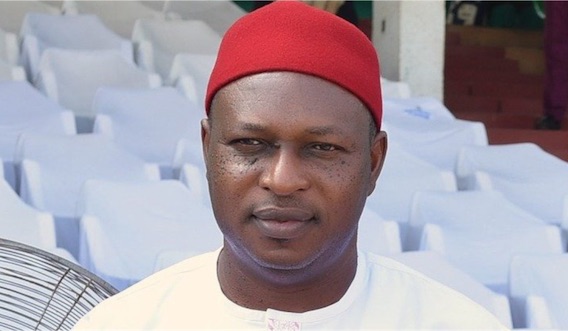
Former Governorship Candidate of the Labour Party(LP) for the 2023 elections in Enugu State, Hon Chijioke Edeoga has hailed the Thursday ruling of the Supreme Court, which granted financial autonomy to the nation’s 774 LGAs.
Edeoga, in reaction to the judgment said in a statement in Abuja that the judgment was in line with the existing constitutional order.
“While it is suspected that the judgment may not meet the approval of advocates of political restructuring in Nigeria, there is no doubt that it accords with the demands of the existing constitutional order.
“The violation of the provisions of the Nigerian Constitution of the Federal Republic of Nigeria by governors of Nigerian states has been going on with flagrant impunity for many years and under different administrations since 1999.
“Local Government Areas, recognized in the Nigerian Constitution as the third tier of government and the one closest to the people, have been deprived of the funds needed for grassroots development, thus existing at the mercy of state governors,” he remarked.
He regretted that over the years, state governors have made local government funds their cash cows, receiving and dispensing as they deemed fit, and without regard to the development imperatives of the councils, their employees, and their respective peculiar development challenges.
“This abuse has given rise to situations where local councils are forced to queue on a strange breadline, where governors favour some local governments while sidelining others.
“The offices of the Economic and Financial Crimes Commission (EFCC) and other anti-corruption agencies are stacked with files bursting with evidence of abuse of local council funds by state governors, whose prosecution has been hindered by red tape and other inexplicable reasons” he noted.
The former Governorship candidate recalled that during his campaign for the Governorship of Enugu State, he highlighted the deplorable management of local council funds in Enugu State and vowed that council funds would be sacrosanct if he won the election.
He said as a former local government Chairman, he knew the importance of those funds and the leverage they provide for rural development, employment generation, and economic empowerment.
“My belief is that rather than treat council funds as a source of free money as most state governors see them, I would ensure easy and direct access to it by council chairmen as a means of ensuring that local government councils become complementary to the state government’s development efforts,” he stressed.
He said his intention upon assumption of office was to empower Local councils and noted that the judgment will minimize the tendency of some governors and state officials to favour their local governments of origin while sidelining others.
“I am particularly relieved that the administration of President Bola Tinubu has taken this rare positive step towards restoring the glories of local administration in Nigeria. “Those of us in the Enugu State chapter of the Labour Party see this as a step in the right democratic direction and must single out President Tinubu and the Attorney General of the Federation, Prince Lateef Fagbemi, SAN, for pursuing this judgement with a single-minded determination and patriotic purposefulness.
“While we commend the current administration for the rare courage and vision deployed in pursuit of this case, we must also advise against allowing the judgement to form another layer of entry in our Case Laws. Nigerians are excited by the judgement and are looking forward to the restoration it would bring to bear on rural development across the country, and would be displeased if deliberate political, judicial, and institutional efforts are not made to ensure that implementation.”
“This judgement, it must be emphasised, is a PUBLIC INTEREST MATTER and has reignited hope of a possible grassroots development renaissance among the progressive-minded people that are interested in the development of Nigeria and the wellbeing of everyone” he stated.
COVER
Minimum Wage: Labour Rules Out Strike, Awaits Tinubu’s Nod
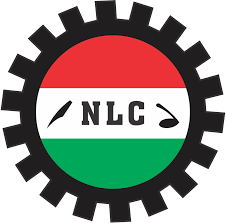
By David Torough, Abuja
The Nigeria Labour Congress (NLC) has ruled out strike action earlier scheduled for Tuesday (today) to demand a new national minimum wage.
The NLC President, Joe Ajaero, made this known yesterday during the ongoing International Labour Conference taking place in Geneva, Switzerland.
Ajaero said organised labour cannot embark on strike today because the figures presented by the tripartite committee on minimum wage were with President Bola Tinubu.
He clarified that the submission of N62,000 as proposed by the government and the organized employers’ body with labour proposing N250,000 does not translate to labour accepting N62,000 as the new minimum wage.
“The tripartite committee submitted two figures to the President. Government and employers proposed N62,000 while labour proposed N250,00o. We are waiting for the decision of the President. Our National Executive Council (NEC) will deliberate on the new figure when it is out.
“We cannot declare a strike now because the figures are with the President. We will wait for the President’s decision.
“During the tenure of the immediate past President, the figure that was proposed to him was N27,000 by the tripartite committee but he increased it to N30,000. We are hopeful that this President will do the right thing. The President had noted that the difference between N62,000 and N250,000 is a wide gulf,” he said.
The NLC president also berated state governors under the umbrella body of the Nigerian Governors’ Forum for rejecting the N62,000 minimum wage proposal.
“How can any governor say he cannot pay? They cannot also be calling for the decentralization of the minimum wage.
“Are there wages decentralized? Governors whose states are not contributing a dime to the national purse and who generate pitiable Internally Generated Revenue (IGR) are collecting the same amount as governors whose states are generating billions of dollars into the FAAC.
“They should decentralize their salaries and emoluments first.
“So, where is the governor of Edo state, Godwin Obaseki getting his money from? He is paying N70,000 minimum wage. This is the type of governor that should be emulated and not the lazy ones,” he added.
COVER
Labour Suspends Strike over Minimum Wage for One Week

By David Torough, Abuja
The Organised Labour yesterday suspended its ongoing indefinite strike action for one week over a new national minimum wage and reversal of the recent electricity tariff hike.
A joint National Executive Council (NEC) meeting of both Nigeria Labour Congress (NLC) and Trade Union Congress (TUC) has approved to relax the industrial action for one week with immediate effect.
It was gathered that the development followed a tentative agreement reached between the Federal Government and the Organised Labour on the new national minimum wage on Monday night with a resolution to further engage daily for the next one week at the level of the Tripartite Committee on National Minimum Wage until a final agreement is reached.
The Federal Government had assured the Labour leaders that President Bola Tinubu was committed to paying a new monthly minimum wage above the initial offer of N60,000.
This was disclosed late Monday night at the end of a marathon meeting convened by the Secretary to the Government of the Federation (SGF), George Akume, in furtherance to the negotiation by the Tripartite Committee on National Minimum Wage (NMW) and subsequent withdrawal of the Organised Labour from the negotiation table.
Members of the NLC and TUC earlier on Monday embarked on an indefinite nationwide strike to press home their demands for a new national minimum wage and reversal of the recent electricity tariff hike, a development that paralysed activities in both public and private sectors across the country.
In a statement issued at the end of the meeting endorsed by the Ministers of Information and that of Labour and Employment, Mohammed Idris and Nkiruka Onyejeocha, respectively, on the part of the Federal Government, and NLC and TUC Presidents, Joe Ajaero and Festus Osifo, respectively, on the part of the Organised Labour, the meeting agreed on a four-point resolutions as a pathway to ending the ongoing industrial dispute.
“The President, Commander-in-Chief of the Armed Forces, Federal Republic of Nigeria is committed to a National Minimum Wage that is higher than N60,000;
“Arising from the above, the Tripartite Committee is to meet every day for the next one week with a view to arriving at an agreeable National Minimum Wage;
“Labour in deference to the high esteem of the President, Commander-in-Chief of the Armed Forces, Federal Republic of Nigeria’s commitment in (ii) above undertakes to convene a meeting of its organs immediately to consider this commitment; and
“No worker would be victimised as a result of the industrial action,” the resolutions read.
In a statement issued at the end of the meeting endorsed by the Ministers of Information and that of Labour and Employment, Mohammed Idris and Nkiruka Onyejeocha, respectively, on the part of the Federal Government, and NLC and TUC Presidents, Joe Ajaero and Festus Osifo, respectively, on the part of the Organised Labour, the meeting agreed on a four-point resolutions as a pathway to ending the ongoing industrial dispute.
“The President, Commander-in-Chief of the Armed Forces, Federal Republic of Nigeria is committed to a National Minimum Wage that is higher than N60,000;
“Arising from the above, the Tripartite Committee is to meet every day for the next one week with a view to arriving at an agreeable National Minimum Wage;
“Labour in deference to the high esteem of the President, Commander-in-Chief of the Armed Forces, Federal Republic of Nigeria’s commitment in (ii) above undertakes to convene a meeting of its organs immediately to consider this commitment; and
“No worker would be victimised as a result of the industrial action,” the resolutions read.
Tinubu Gives Finance Minister 48 Hours to Present New Minimum Wage Template
Meanwhile, President Bola Tinubu has directed the Minister of Finance, Wale Edun, to come up with the cost Implications on the new minimum wage within two days.
Minister of Information and National Orientation, Mohammed Idris, made this known while briefing State House Correspondents after a meeting the negotiation team had with the president at Aso Rock, yesterday.
“All parties to the negotiation of the new minimum wage would work together with the organised labour to present a new minimum wage for Nigerians in one week.
“All of us will work together assiduously within the next one week to ensure that we have a new wage for Nigeria that is acceptable, sustainable and also realistic.”
Idris also disclosed that the President had given a marching order that all those who have negotiated on behalf of the Federal government and all those who are representatives of organised private sectors, the sub nationals to come together to have a new wage award that is affordable, sustainable and realistic for Nigerians
The minister said Tinubu was committed to accepting the resolutions of the tripartite committee on the new minimum wage.
“We were all there to look at all issues, and the president has directed the minister of finance to do the numbers and get back to him between today and tomorrow so that we can have figures ready for negotiation with labour. Let me say that the president is determined to go with what the committee has said, and he’s also looking at the welfare of Nigerians.
“The government is not an opponent of labour discussions or wage increases.”
The minister said the president directed that the committee should work together to give Nigerians an “affordable, sustainable, and realistic” minimum wage.
“All of us will work together assiduously within the next one week to ensure that we have a new wage for Nigeria that is acceptable, sustainable, and also realistic,” he said.
Secretary to the Government of the Federation, George Akume, had summoned labour leaders to an emergency meeting after the strike which crippled economic activities on Monday.
At the end of the meeting, it was announced that the Federal Government had offered to pay higher than N60,000 minimum wage.






